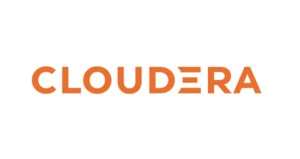
(INGARA/Shutterstock)
In today’s data-driven world, how we store, analyze, and manage data is important for organizations. Data lakehouse, which uses the best aspects of data lakes and data warehouses, offers organizations a way to store massive volumes of raw data while providing a structured environment for complex analytics.
To help unlock the full potential of datalakes, Cloudera, an enterprise AI-based data company, has announced the next phase of its open data lakehouse on a private cloud. The company has now become the only provider to offer an open data lakehouse with Apache Iceberg for private and public clouds.
A recent study by Cloudera showed that more than half of organizations (53 percent) in the U.S. currently use GenAI and an additional 36 percent are in the early stages of exploring GenAI implementation. While GenAI adoption is on the rise, the study revealed that 84 percent of decision-makers for data strategy and management are concerned about data privacy, security, and compliance issues in using GenAI.
Similar concerns have been highlighted in several other studies, including the 2023 State of Unstructured Data Management survey by Komprise, and the State of Ethics and Trust in Technology report by Deloitte.
The looming threat of strict regulations on GenAI implementation and ethical issues have added to the concerns. GenAI adoption has stalled as businesses find ways to overcome some of the challenges.
 Cloudera offers a solution by delivering an open lakehouse with Apache Iceberg on private clouds. Organizations can now address the issue of scaling enterprise AL deployments to derive greater value from their data.
Cloudera offers a solution by delivering an open lakehouse with Apache Iceberg on private clouds. Organizations can now address the issue of scaling enterprise AL deployments to derive greater value from their data.
The high-performance table format of Apache Icebergs enables organizations to apply AI to large volumes of data for cloud and on-premises environments. This enables organizations to create new use cases. The air-gapped LLM deployment offered by Cloudera offers enhanced security and data privacy, as well as reduced operating costs and improved performance.
“Cloudera’s mission is to empower customers to transform data anywhere into actionable insights by enabling it with AI,” said Dipto Chakravarty, Chief Product Officer at Cloudera. “By giving them a trusted data foundation for analytics, this next phase of cloud-native solutions unlocks endless possibilities for building innovative AI applications.”
According to Chakravarty, for organizations to extract maximum value from their technology stack, they need a data management strategy that can “transform complex data anywhere into actionable insights”.
Cloudera’s open data lake house will support the fast-growing Apache Iceberg community. The open table format is expected to continue growing as it makes it easier for businesses to use and maintain their data. A key benefit of the format is that it allows businesses to own their data. This means that even if they transition to different technologies or vendors in the future, they would still have full ownership of their data.
With its better interoperability, support for schema evolutions, query performance, and storage efficiency, the open data the open table format could become a fundamental requirement for businesses
Cloudera also announced additional updates to its platform including expanded support for integration with several programming languages, software, and platforms including Oracle 8.8 and Python 3.10. The new Apache Zone capabilities will help scalability at a lower cost. The platform is also getting zero downtime upgrades and security enhancements such as Transport Layer Security (TLS) 1.2.
Related Items
The Data Lakehouse Is On the Horizon, But It’s Not Smooth Sailing Yet
Will the Data Lakehouse Lead to Warehouse-Style Lock-In?
There Are Many Paths to the Data Lakehouse. Choose Wisely




